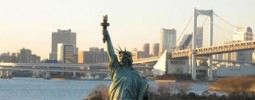Kampala is the capital and largest city of Uganda. It replaced Entebbe as the national capital of Uganda in 1962 and is now the country’s administrative, commercial, communications, and transportation center. Built on and surrounded by seven hills, Kampala is home to more than 2 million people.
Kampala is known for its lush greenery interspersed with modern buildings, all buzzing with life. This city is known for its interesting mix of establishments ranging from traditional to trendy restaurants, fashionable shopping places, and a bustling nighttime entertainment scene. African culture is very alive in Kampala, especially in the markets of Owino and Nakasero, where locals, dressed in traditional African attire, all flock to gather for the day’s produce. Cultural events are also not hard to find in the city. The city’s residents speak English, Swahili, and Luganda, although local tribal dialects are also widely spoken in the suburbs.
The safest and most convenient way to get around the city is by commuter taxi, since the move to a city bus service which has long been in the works has not yet been implemented by the government. Another popular mode of transportation is the boda-bodas — motorcycles that offer more accessibility, especially in areas of heavy traffic. Rentals are also widely available but tourists are often advised not to drive after sundown to avoid car thefts and highway banditry. Tourists are advised against using their credit cards because credit card fraud is rampant in the city.
The visa policy in Uganda follows the principle of reciprocity, where countries that require visas for Ugandans are also required to present visas to enter Uganda. Those with US passports need an entry visa to visit Uganda. The same applies to naturalized American citizens of Ugandan descent. Single-entry visas will cost around $50 and applications can be processed at the Ugandan embassy or at various entry points.








